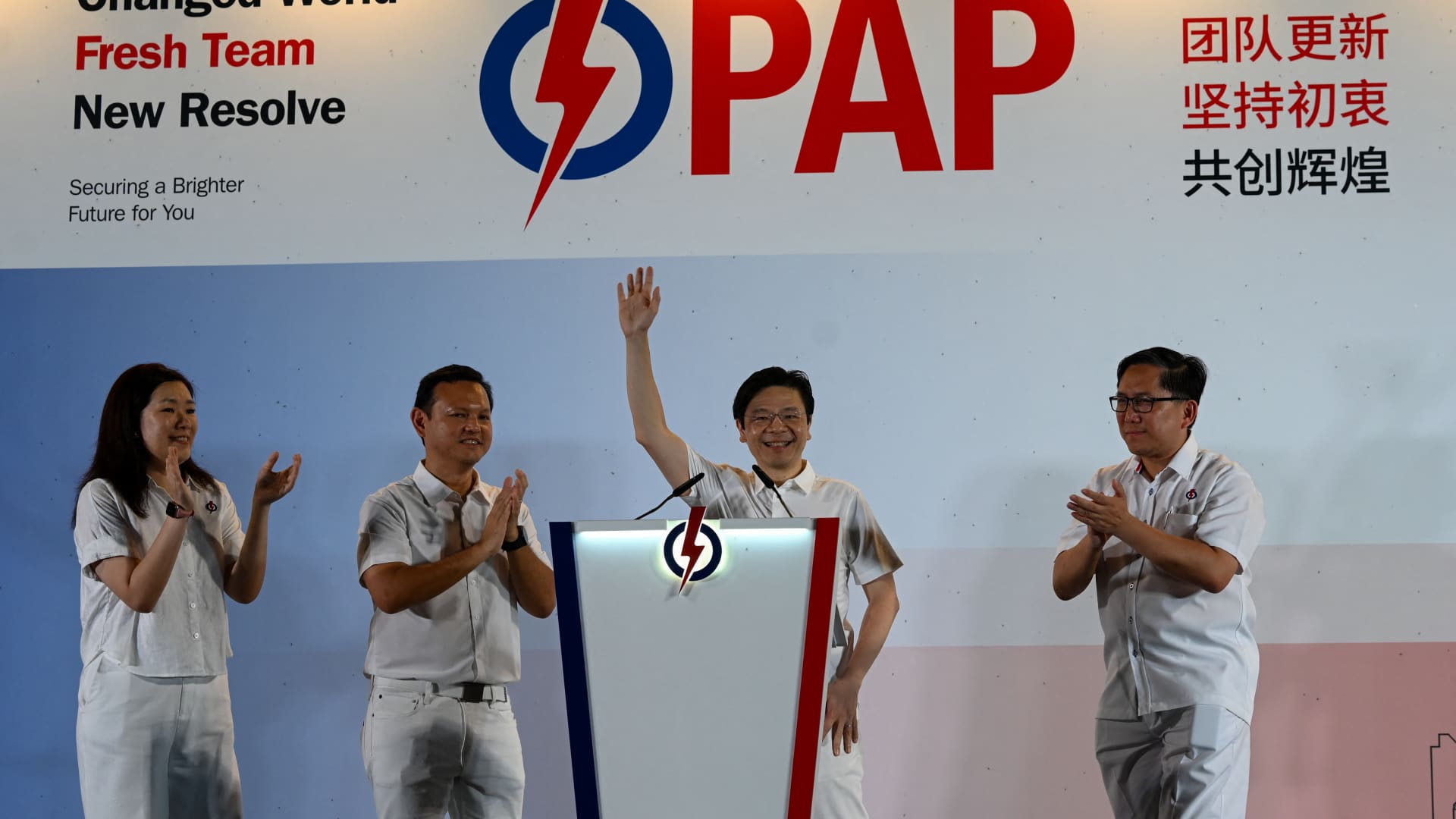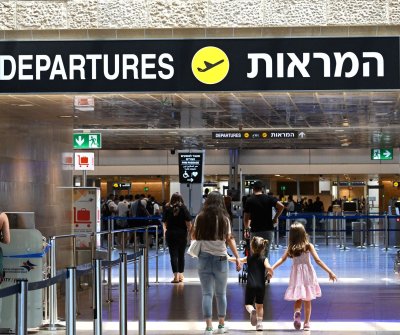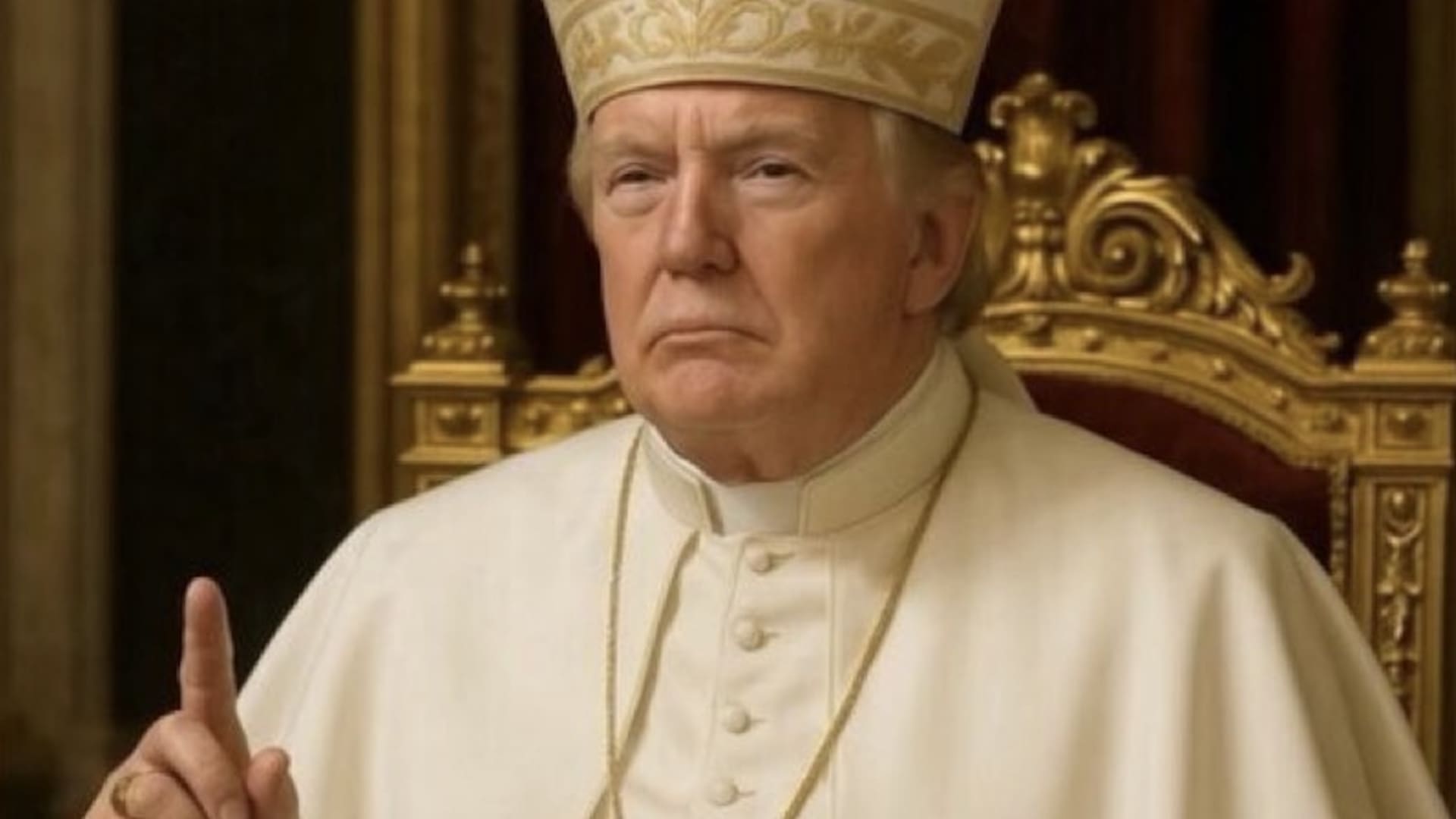Now Reading: Singapore’s Wong retains power as ruling People’s Action Party boosts vote share in landslide victory
-
01
Singapore’s Wong retains power as ruling People’s Action Party boosts vote share in landslide victory
Singapore’s Wong retains power as ruling People’s Action Party boosts vote share in landslide victory

Singapore’s Prime Minister Lawrence Wong from the People’s Action Party (PAP) greeted his supporters at the party’s gathering center during the general election results celebration in Singapore on May 3, 2025.
A total of 92 seats were up for voting, with the PAP securing five seats uncontested on Nomination Day on April 23. The ruling party also saw an increase in its share of the vote, capturing 65.57% compared to 61.2% in the previous 2020 election.
This election marked Wong’s debut as prime minister and was mainly centered around issues like cost of living, job opportunities, and economic growth as reported by local media outlet CNA. Wong stands out as the first PAP leader to boost the party’s vote share in the initial election term, unlike the declines observed in the 1991 and 2006 elections following leadership changes in 1990 and 2004, respectively.
Wong, who also serves as the finance minister, assumed office in May 2024 after taking over from Lee Hsien Loong. Lee currently holds the position of Senior Minister in Wong’s cabinet.
Since 1959, the PAP has been in power in Singapore, a former British colony that gained full autonomy and later independence in 1965. Following the election results, Wong expressed gratitude for the strong mandate given by Singaporeans, emphasizing the trust, stability, and confidence bestowed upon the government to navigate through global challenges.
The U.S. State Department and the European Commission President Ursula von der Leyen congratulated Wong on the PAP’s victory, showing readiness for collaboration to enhance economic growth and defense ties, praising the existing strong partnership with Singapore.
In the midst of Singapore’s economic slowdown and uncertain trade conditions, the country revised its GDP growth forecast and implemented policy adjustments. Wong had cautioned about a possible recession in 2025 and established a task force to support businesses and workers amidst the uncertainties stemming from global trade developments.
Efforts were made to negotiate with the U.S. to secure concessions for pharmaceutical exports and strengthen export controls for high-end AI chips, as Singapore faced challenges from the 10% tariff imposed despite a trade deficit with the U.S. and an existing free trade agreement since 2004.






